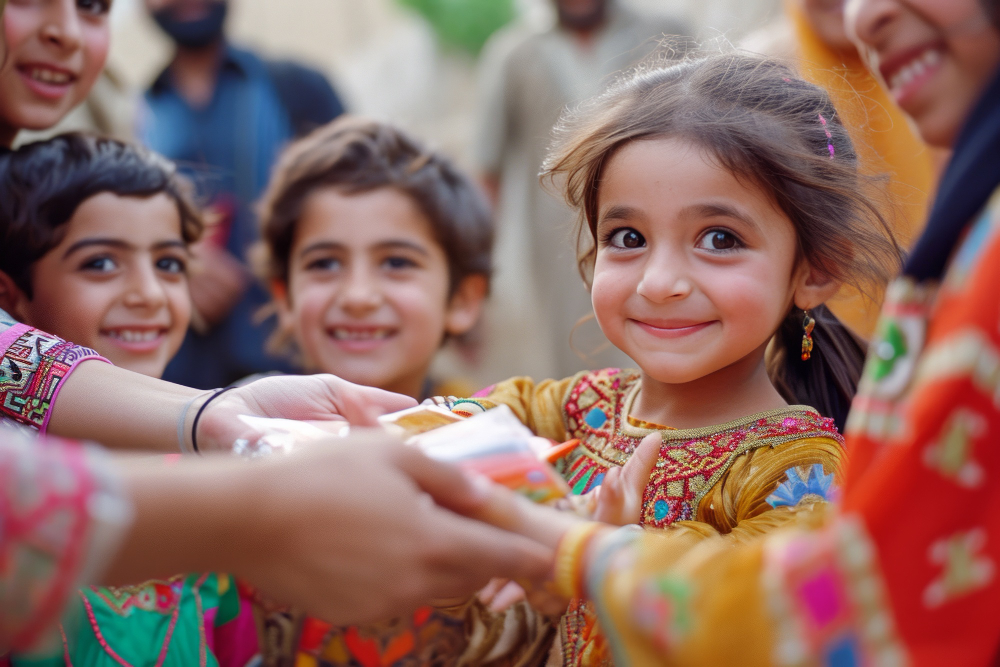Community
Children Rights in India: Empowering the Future Generation

Children are the future pillars of society, and ensuring their rights and well-being is crucial for building a prosperous nation. In India, several laws and initiatives have been established to safeguard the rights of children and provide them with a nurturing environment to thrive. In this article, we will explore 10 fundamental rights that every child in India is entitled to.
Right to Education
The Right to Education Act (RTE), enacted in 2009, guarantees free and compulsory education for children aged 6 to 14 years. This landmark legislation aims to ensure that every child has access to quality education, regardless of their socio-economic background. By eliminating barriers to education, RTE plays a pivotal role in empowering children and breaking the cycle of poverty.
Right to Survival
Every child has the inherent right to survival and development. The Government of India has implemented various schemes and programs to address issues such as infant mortality, malnutrition, and access to healthcare. Initiatives like the Integrated Child Development Services (ICDS) scheme focus on providing essential healthcare, nutrition, and early childhood education to children in need.
Right to Protection
Children are vulnerable to various forms of exploitation, abuse, and violence. To protect their rights, India has enacted laws such as the Juvenile Justice (Care and Protection of Children) Act, 2015, which aims to provide care, protection, and rehabilitation to children in conflict with the law. Additionally, the Protection of Children from Sexual Offences (POCSO) Act, 2012, addresses the issue of child sexual abuse and provides for stringent punishment for offenders.
Right to Participation
Children have the right to express their views and opinions on matters that affect them. The Convention on the Rights of the Child (CRC), ratified by India in 1992, emphasizes the importance of child participation in decision-making processes. Through platforms such as children’s parliaments, youth forums, and school councils, efforts are made to ensure that children’s voices are heard and respected.
Right to Identity
Every child has the right to a legal identity, including birth registration and nationality. Birth registration is essential for accessing various rights and entitlements, such as education, healthcare, and social services. The Government of India has launched initiatives like the Birth Registration Act, 1969, to promote universal birth registration and ensure that every child is recognized under the law.
Right to Development
Children have the right to holistic development, encompassing physical, mental, emotional, and social well-being. The National Policy for Children, adopted in 2013, outlines comprehensive strategies for promoting child development and protection. Through early childhood care and education, skill development programs, and youth empowerment initiatives, India aims to nurture the potential of every child and prepare them for a fulfilling future.
Right to Play and Recreation
Play is an essential aspect of childhood that promotes creativity, socialization, and physical health. The Government of India recognizes the importance of play and recreation in children’s lives and has implemented measures to ensure access to safe and inclusive play spaces. Initiatives like the National Program for Development of Sports promote sports and recreational activities among children, fostering their overall development and well-being.
Right to Non-Discrimination
Every child has the right to be treated equally and without discrimination. India’s Constitution prohibits discrimination on the basis of caste, religion, gender, or ethnicity, and several laws have been enacted to uphold this principle. However, challenges persist, particularly for marginalized and vulnerable groups such as girls, children with disabilities, and those belonging to minority communities. Efforts are ongoing to address these disparities and ensure that every child enjoys equal rights and opportunities.
Right to a Safe Environment
Children have the right to live in a safe and nurturing environment that promotes their well-being and protects them from harm. India is committed to creating child-friendly cities and communities where children can grow and thrive in a supportive environment. Measures such as strengthening child protection systems, improving access to safe housing and sanitation, and raising awareness about child rights contribute to building safer environments for children across the country.
Right to Family Care and Alternative Care
Every child has the right to family care and, in cases where it is not possible, to alternative care that meets their best interests. India’s child welfare laws prioritize family-based care and aim to prevent unnecessary separation of children from their families. Additionally, efforts are made to strengthen the foster care system and promote adoption as viable options for providing loving and stable homes to children in need.
Conclusion
In conclusion, the rights of children in India are enshrined in various laws, policies, and international conventions aimed at ensuring their holistic development, protection, and well-being. By upholding these rights and investing in the future generation, India paves the way for a brighter and more inclusive society where every child has the opportunity to thrive and fulfill their potential.
